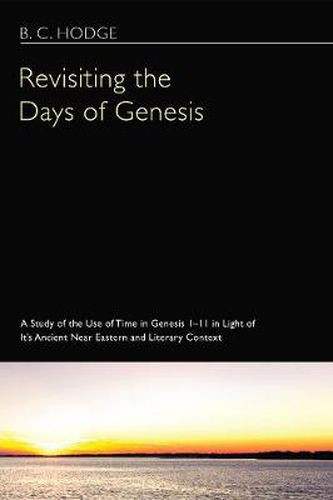Readings Newsletter
Become a Readings Member to make your shopping experience even easier.
Sign in or sign up for free!
You’re not far away from qualifying for FREE standard shipping within Australia
You’ve qualified for FREE standard shipping within Australia
The cart is loading…






This title is printed to order. This book may have been self-published. If so, we cannot guarantee the quality of the content. In the main most books will have gone through the editing process however some may not. We therefore suggest that you be aware of this before ordering this book. If in doubt check either the author or publisher’s details as we are unable to accept any returns unless they are faulty. Please contact us if you have any questions.
A commitment to historical-grammatical hermeneutics often has been confused with a commitment to literal language. Time, in our modern conception, has been construed as a measurement of temporal units, and the numbers assigned to them, as merely counting those units. However, a study is needed to explore whether this is the Genesis author’s use of time, and whether numerical values utilized suggest something other than tracking simple measurements. This book attempts to offer an answer to this question by analyzing the ancient Near Eastern and literary context of the Book of Genesis in terms of its use of temporal language in determining its value within the narrative. It is the contention of this book that both of these concepts have been misunderstood to such an extent that these misperceptions often obstruct interpreters from understanding the sociological and theological intent of the author to convey a theology of God, man, creation, and chaos that addresses concerns of both the ancient and the modern reader.
$9.00 standard shipping within Australia
FREE standard shipping within Australia for orders over $100.00
Express & International shipping calculated at checkout
This title is printed to order. This book may have been self-published. If so, we cannot guarantee the quality of the content. In the main most books will have gone through the editing process however some may not. We therefore suggest that you be aware of this before ordering this book. If in doubt check either the author or publisher’s details as we are unable to accept any returns unless they are faulty. Please contact us if you have any questions.
A commitment to historical-grammatical hermeneutics often has been confused with a commitment to literal language. Time, in our modern conception, has been construed as a measurement of temporal units, and the numbers assigned to them, as merely counting those units. However, a study is needed to explore whether this is the Genesis author’s use of time, and whether numerical values utilized suggest something other than tracking simple measurements. This book attempts to offer an answer to this question by analyzing the ancient Near Eastern and literary context of the Book of Genesis in terms of its use of temporal language in determining its value within the narrative. It is the contention of this book that both of these concepts have been misunderstood to such an extent that these misperceptions often obstruct interpreters from understanding the sociological and theological intent of the author to convey a theology of God, man, creation, and chaos that addresses concerns of both the ancient and the modern reader.